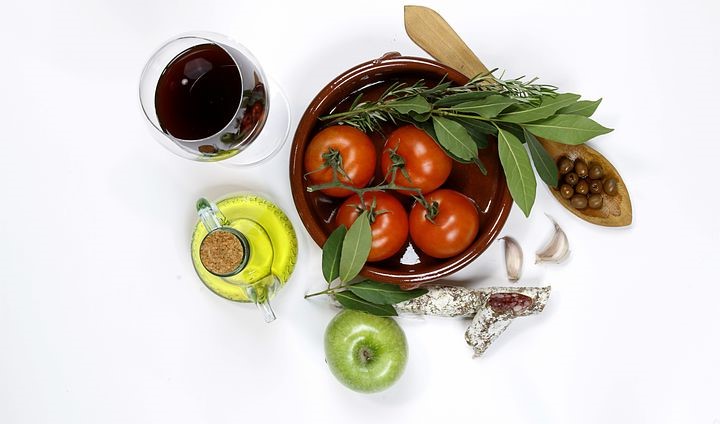She was at her wits end. She felt like her diet was healthy; she was watching calories and carbs. . . and exercising. She was STILL having hot flashes. She was carrying around 30-40 extra pounds that just wouldn’t budge. Her cholesterol was high as was her blood pressure. Her doctor told her she was “pre-diabetic” at her last appointment. (A term I’ll address in another blog soon). She described her diet as ‘pretty much Mediterranean.’ She added olive oil, used small amounts of cheeses, ate some red meat (‘not a lot’), chicken & fish, red wine, ‘a fair amount of veggies and fruit’, some grains and beans. None of what was going on was enough to kill her anytime soon but, now in her mid-50’s, she was aware she was a prime candidate for developing heart disease and cancer; both run in her family and she knows statically they are the 2 biggest killers on our society.
She dreads seeing her doctor; who she dutifully visits yearly. She understands the inherent dangers of the medications they prescribe. Medications that she has, thus far avoided. She wanted some diet & lifestyle advice.
“Did you know that the ‘big breakthrough study’ of the Mediterranean Diet from a few years ago has been retracted?” I inquired. I got a blank stare.
Yes, the study, originally published in 2013, was retracted in June of 2018 because it came out that the randomization process was not random at all! Couples who signed up were put on the same diet as was a full village of people! So now they can only say there appears to be a correlation between the diet and less strokes or heart attacks; not that the diet diminishes the likelihood of either.
“And further, did you know that the study REALLY only showed a 1% difference in outcome; not a 30% as reported in the media?” Another blank stare.
A total of 288 primary-outcome events occurred: 96 in the group assigned to a Mediterranean diet with extra-virgin olive oil (3.8%), 83 in the group assigned to a Mediterranean diet with nuts (3.4%), and 109 in the control group (4.4%). (NEJM)
“How do they get away with saying that was 30%?” She asked.
It has to do with “relative difference” (3.8 vs.4.4) rather than absolute difference (less than 1%). This is a slight-of-hand used in medicine all the time. The relative risk of something can be 2% and a drug lowers it to 1%; the actual difference is only 1%, yet it is usually reported as 50%! This is a key consideration for almost all procedures & drugs; a consideration YOU, as the patient never hear about!
“So, what can you tell me about the diet you recommend and how that’s likely to change things for me?” She asked.
Well, there are no guarantees. What we can say is that people, world-wide who eat a whole food plant-based diet with little to no added fat (Blue zones areas of the world) have extremely low rates of heart disease, cancer and most of the other diseases that plague Western societies. We can also say that studies of these people show they DO eat animal flesh but eat less than 10% calories from protein daily (they use small amounts of meat for flavoring). The majority of their diet is made up of complex carbohydrate (sweet potatoes, yams, quinoa, millet, brown rice, beans, etc.) and lots of fruits & veggies.
The other things that I assured my client: (1) When you eat low fat plant-based, you’ll likely lose weight without counting calories as long as you limit nuts & seeds and move your body regularly. (2) When you cut out dairy, eat enough fiber and add a little minimally processed (organic) soy (Edamame, tofu or tempe) you’ll help your body better process and balance your hormones and the hot flashes are more likely to subside naturally. (And if not, there is far more we can do that doesn’t require hormones, even if they are called ‘natural.’)
She left with a commitment to make the changes I recommended. One more small victory.
(Note: The above is a compilation of several women; not one specific person.)

Leave a reply